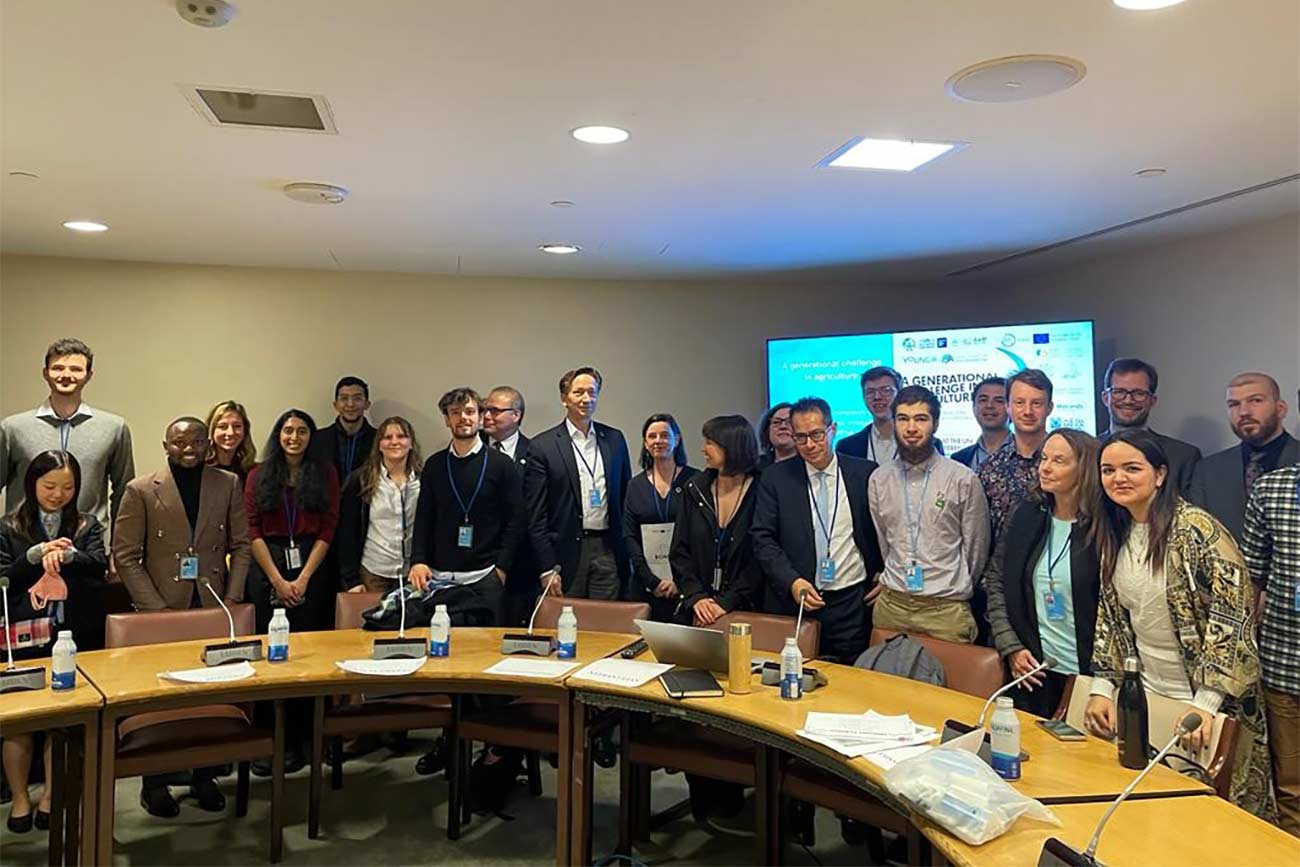WFF co-organizes side event on “A generational Challenge in Agriculture” at the 2023 UN Water Conference

The World Food Forum (WFF) co-organized a side at the UN Water Conference on 24 March, together with several partners including the International Association of Students in Agricultural and Related Sciences (IAAS), Wageningen University & Research, MetaMeta, EIT Food, the United Nations Framework Convention on Climate Change (UNFCCC) YOUNGO Agriculture Working Group, the Islamic Development Bank, Wetlands International, the Middle East and North Africa (MENA) Youth Network, the International Forestry Students’ Association (IFSA) and the Consultative Group on International Agricultural Research (CGIAR).
The side event targeted people studying and working in disciplines and sectors related to water, food, energy and ecosystems, encouraging them to think outside the box when addressing water management challenges. While focusing on the MENA region with two case studies, the event shed light on the complexity of global water challenges with a holistic water-food-energy-ecosystem perspective that can enable a transition towards sustainable water management worldwide. This transition includes using water in a way that is both beneficial for nature and enables us to produce healthy, sustainable food for all.
The main takeaways of the event include:
- Agriculture is the largest freshwater user worldwide – 70 percent globally and between 80-92 percent in the Islamic Development Bank member countries.
- Approximately 60 percent of the Middle East and North Africa’s population already live in areas under severe water stress.
- In the last 12 years, despite the significant water scarcity in the region, the water consumption in almost all irrigated areas increased significantly. The water productivity however, decreased in many of the countries.
- There is a need to change trends in water use and food production in the region, and to make better use of the available scarce water resources.
- Water allocation (‘Who gets what, how, when and where’) is at the heart of water governance, economies and societies at large, but it is often a blind spot. Looking at it from the nexus perspective, there is a need to rethink water allocation.
- The water management issue should be a key component in agrifood systems. Food and water cannot be seen as two separate elements, but rather as complementary.
- Intergenerational collaboration is a key component of sustainable water management.
- The water issue is global but it also needs context specific solutions.
The event also served to launch the WFF TRC Special Prize on the role of water in agrifood systems transformation , inviting innovators to submit a two-page concept note proposing transformative solutions. The prize is hosted in collaboration with the International Water Management Institute Jordan and IAAS’ Food and Agriculture Youth Institute.
In his closing remarks, FAO’s Chief Economist Maximo Torero highlighted the importance of transforming our agrifood systems to address issues within the water-food-energy-ecosystem nexus and the key role of youth in developing innovative solutions.
“We have to ensure youth are included in all aspects of the water-food-energy-ecosystem nexus - they are the not the future leaders but the current actors of change that can lead the way” he stated.
Going forward, the WFF will continue to prioritize the importance of addressing water management in the context of agrifood systems and will continue to engage youth as key stakeholders with their out-of-the-box thinking, and innovative and actionable solutions.
